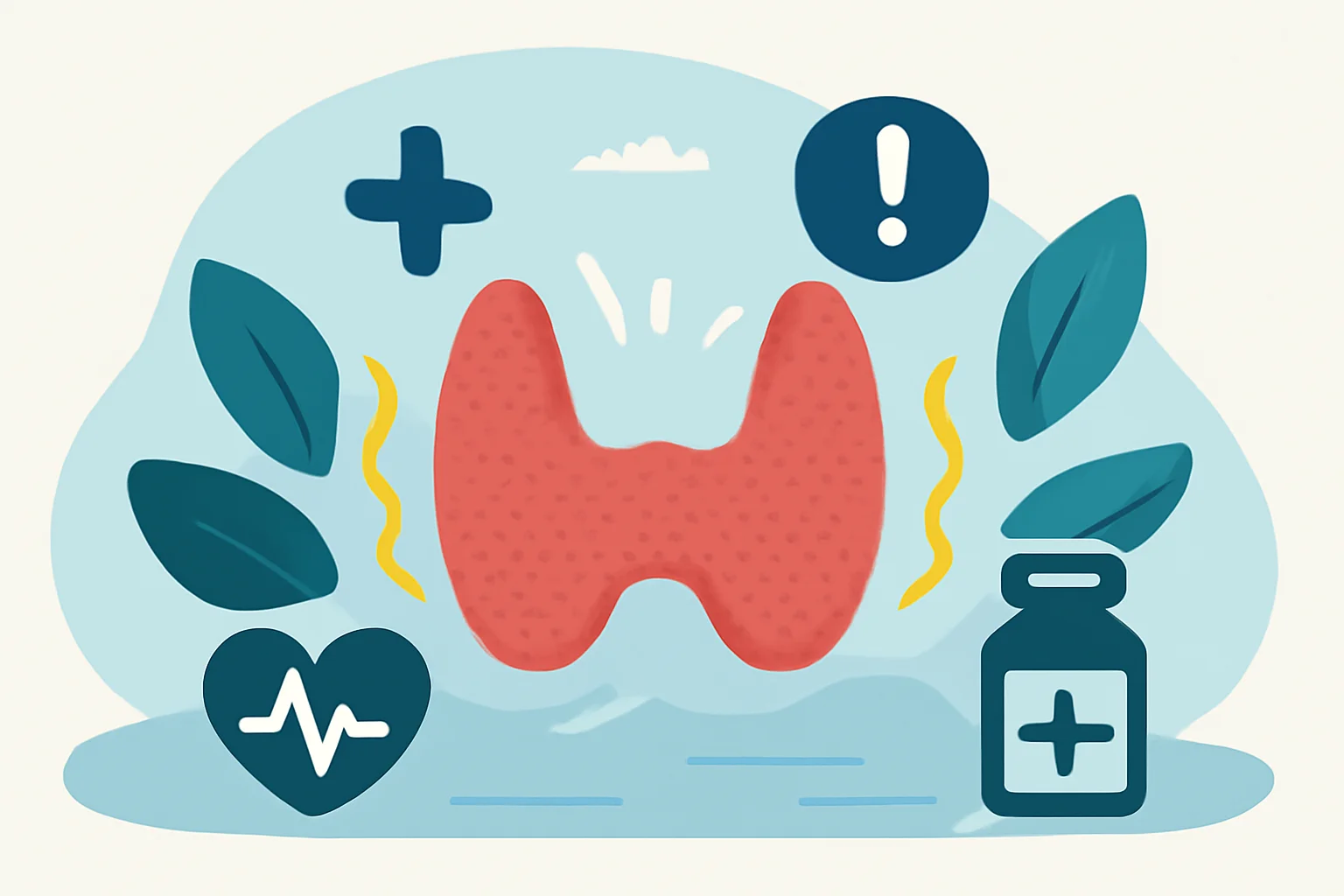-
Symptoms and Treatment Options of Hyperthyroidism
The condition known as hyperthyroidism, or overactive thyroid, is one in which the thyroid gland produces excessive amounts of hormones. This small, butterfly-shaped gland is located at the front of the neck and plays a key role in regulating the body’s metabolism. Thyroid hormones affect various bodily functions, including heart rate, temperature regulation, and energy levels. As a result of overactivity, the body can become saturated with thyroid hormones, leading to numerous unpleasant symptoms and health problems. Hyperthyroidism can develop for various reasons, including Graves’ disease, thyroid inflammation, or hormone-producing tumors. The diagnosis and treatment of the condition are important, as untreated hyperthyroidism can lead to serious complications. Medical tests,…
-
The Role of the Thyroid and Health Preservation Tips
The thyroid is a small but extremely important gland located at the front of the neck. Its role in maintaining the body’s hormonal balance is crucial, as the hormones produced by the thyroid influence metabolism, growth, development, and the functioning of various organ systems. Thyroid hormones, such as thyroxine (T4) and triiodothyronine (T3), enter the bloodstream and affect different parts of the body, including the heart, muscles, bowel function, and even mood. Dysfunction of the thyroid can lead to numerous health problems, whether it is hyperthyroidism or hypothyroidism. Hypothyroidism, or underactive thyroid, is characterized by reduced hormone production, which can cause fatigue, weight gain, and mood swings. Conversely, hyperthyroidism, or…
-
Thyroid Symptoms: Recognize Problems in Time!
The thyroid, as one of our body’s most important hormone-producing glands, plays a key role in regulating our metabolism and maintaining various bodily functions. The hormones produced by the thyroid, such as thyroxine (T4) and triiodothyronine (T3), influence body temperature, heart rate, growth and development, as well as the metabolism of carbohydrates, fats, and proteins. Therefore, the health of the thyroid is essential for well-being and overall health. Unfortunately, many people are unaware that problems related to thyroid function may be behind various symptoms. Hypothyroidism or hyperthyroidism can cause numerous unpleasant complaints, often unrelated to the gland itself. This is why it is important to be aware of the symptoms…
-
Understanding and Managing Hashimoto’s Disease in Everyday Life
The Hashimoto’s disease, also known as Hashimoto’s thyroiditis, is an autoimmune disorder that affects the function of the thyroid gland. The immune system mistakenly attacks the thyroid cells, leading to decreased hormone production and ultimately to hypothyroidism. The disease is much more common in women than in men and is often diagnosed between the ages of 30 and 50. Hashimoto’s disease is progressive in nature, meaning that in its advanced stages, the thyroid may experience significant functional disturbances. The exact causes of Hashimoto’s disease are not fully understood, but genetic predisposition, environmental factors, and hormonal changes may all play a role in the development of the condition. Common symptoms of…
-
Symptoms of Hypothyroidism and the Importance of Their Recognition
The thyroid gland underactivity, also known as hypothyroidism, is a condition in which the thyroid gland does not produce enough hormones for the body to function properly. This disease affects many people worldwide, and the symptoms cover a wide spectrum, ranging from fatigue to weight gain. The thyroid gland is located in the front of the neck and plays an important role in regulating metabolism, as well as controlling body temperature, heart rate, and growth. Hypothyroidism often develops gradually, and in many cases, the symptoms are so subtle that those affected do not even realize that something is wrong. However, as the disease progresses, the symptoms can become increasingly severe…




